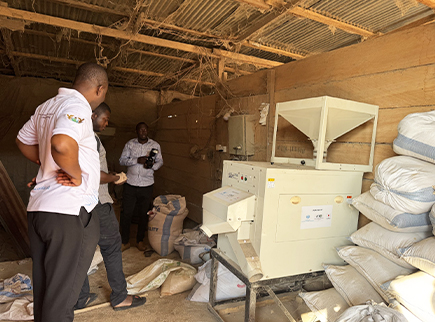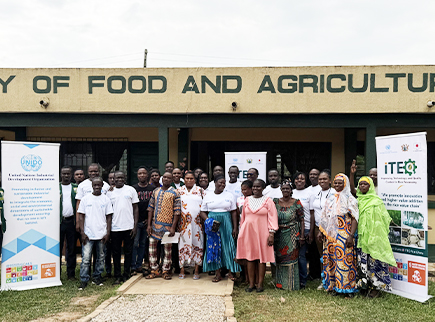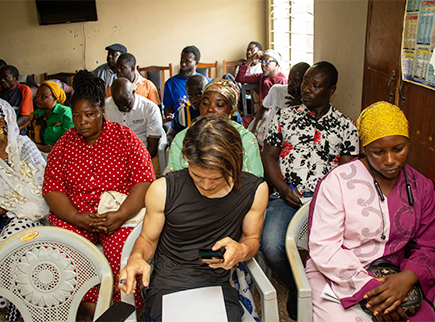About 60 rice value chain actors have undergone a two-day training in good manufacturing practices, product registration, and facility licensing, with emphasis on post-harvest quality management.
The training sessions, held separately in Tepa (Ahafo Ano North) and Bekwai (Ashanti Region), were conducted by the Food and Drugs Authority (FDA) with support from the Ministry of Food and Agriculture (MoFA) and the United Nations Industrial Development Organization (UNIDO). They formed part of the Improving the Technology and Quality Control System for Higher Value Addition in the Post-harvest Processes of the Rice Value Chain (ITEQ) Project, funded by the Japanese Government.

The project, which began in 2023, seeks to strengthen the capacity of value chain actors and institutions to meet market requirements, enhance competitiveness, and open new opportunities in Ghana’s rice industry.
Madam Yaa Pokua, Ashanti Regional MoFA Focal Person for the ITEQ Project, said the Regional Directorate had selected districts and beneficiaries while implementing training programmes. She noted that the project had already trained farmers on good agricultural practices, including proper variety selection, field management, and cropping methods, as well as trained millers and aggregators on good storage techniques.
She added that the project had supported millers and processors with improved equipment—milling machines, de-stoners, colour sorters, and graders—and secured a rice briquette machine to convert rice husk into eco-friendly briquettes for fuel.
Madam Jessica Adotey, FDA’s Focal Person for the project, stressed that Ghana’s rice had become increasingly competitive with imported brands, making it necessary to enforce standards in management practices, product registration, and licensing.

Mr. David Darkoh, Capacity Building Coordinator for the ITEQ Project, said the training aimed to equip beneficiaries with specific, practical actions to continuously improve post-harvest quality, thereby producing better rice to meet consumer expectations and boost market competitiveness.
Sharing his experience, Mr. Jephtha Kwame Osei, a rice miller and processor, said the training had enhanced his record-keeping and improved his understanding of quality standards needed to sustain his business. He emphasized that proper sorting and packaging by local farmers could significantly increase demand and consumption of Ghana’s rice locally and abroad.

